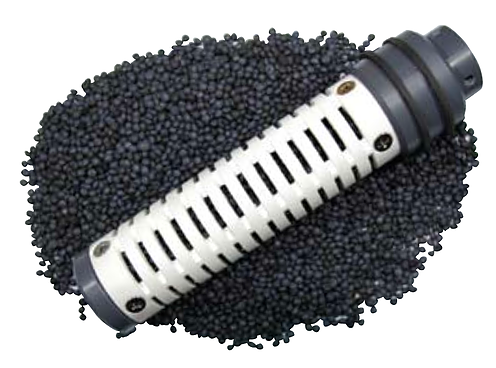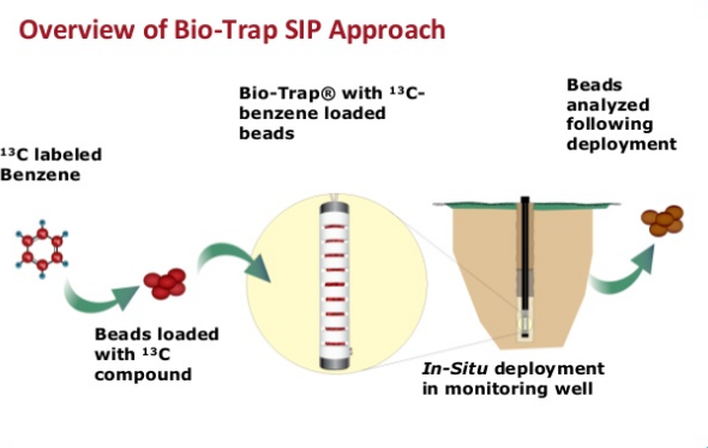
Dr. David C. White
MD. PhD
1929-2006
Microbial Insights, Inc. was established in 1992 as a technology transfer company based on the pioneering research of Dr. David C. White, MD, PhD of the University of Tennessee. Dr. White was a true scholar, able to speak easily about international politics, philosophy, and religion, but was world renown for his immense contributions to science. His nearly five decade career includes over 540 publications that spanned cell physiology from electron transport to phospholipid fatty acid (PLFA) composition while introducing the concept of microbial ecology.
In 1998, MI became one of the first commercial laboratories to offer DNA-based technologies including CENSUS®, a molecular biological tool based on quantitative polymerase chain reaction (qPCR), as a cost-effective approach to characterize microbial communities. At sites impacted by chlorinated solvents like tetrachloroethene (PCE) and trichloroethene (TCE) for example, project managers submit samples for CENSUS® quantification of Dehalococcoides to directly evaluate the feasibility of monitored natural attenuation, quantify the efficacy of enhanced bioremediation, and assess the need for bioaugmentation. Currently, we offer over 200 CENSUS® assays to evaluate a wide variety of functions ranging from bioremediation of chlorinated solvents (PCE, TCE, DCE, VC, TCA, PCP, and perchlorate) and petroleum hydrocarbons (BTEX, PAHs, and MTBE) to wastewater treatment and biofilm formation. Moreover, we strive to remain the industry leader for nucleic acid (DNA and RNA) technologies and can develop custom CENSUS® assays for site-specific microbial processes.

In collaboration with Dr. Kerry Sublette of the University of Tulsa, we developed and first offered Bio-Trap® Samplers in 1998. Bio-Trap® Samplers are passive sampling tools that collect microbes over time for the purpose of better understanding biodegradation potential. The key to the Bio-Trap® approach is a unique sampling matrix, Bio-Sep beads. The beads are 2-3 mm in diameter and are engineered from a composite of Nomex and powdered activated carbon (PAC). When a standard Bio-Trap® Sampler is deployed in a monitoring well, the beads adsorb contaminants and nutrients present in the aquifer essentially becoming an in situ microcosm with an incredibly large surface area which is colonized by subsurface microorganisms. Alternatively, Bio-Trap® can be “baited” with various amendments or compounds to answer site-specific questions. Once recovered from a monitoring well, DNA, RNA, or phospholipid fatty acids (PLFA) can be extracted from the beads for CENSUS® or PLFA analysis to evaluate the microbial community.

Throughout our history, MI has been dedicated to the development of analyses and advanced sampling tools to facilitate intelligent site design and management decisions in the environmental remediation industry. Moving forward, we will continue to be on the leading edge of research and development – always exploring innovative technologies and new applications.

The evolution of the Bio-Trap® Samplers continues today through integration with complementary technologies. Bio-Trap® Advanced Diagnostic Tools were developed as an in situ and cost-effective alternative to laboratory microcosm and pilot studies to provide microbiological, chemical, and geochemical evidence to evaluate remedial options. Bio-Trap® Samplers have also been used in conjunction with stable isotope probing (SIP), an innovative method to track the environmental fate of a “labeled” contaminant of concern to unambiguously demonstrate biodegradation. With the SIP method, the Bio-Trap® sampler is baited with a specially synthesized form of the contaminant containing 13C labeled carbon. Following deployment, the Bio-Trap® is recovered and three approaches are used to conclusively demonstrate biodegradation: (1) loss of the labeled compound to estimate degradation rates, (2) quantification of 13C enriched PLFA to demonstrate incorporation into microbial biomass, and (3) quantification of 13C enriched dissolved inorganic carbon to demonstrate contaminant mineralization.

In 2016, the Knoxville Chamber of Commerce presented Microbial Insights (MI) with the Woman-Owned Business Excellence Award at the 12th Pinnacle Business Awards Gala.
The Woman-Owned Business Excellence Award is presented annually to an outstanding woman-owned and operated business in East Tennessee. The Pinnacle Awards were started by the Chamber to recognize and celebrate outstanding local businesses and business people. More than 700 people attended the awards gala held at the Knoxville Convention Center.
Accepting on behalf of MI, Dora Taggart thanked the Chamber of Commerce and added to one of the themes of the evening…the link between innovation and diversity. “At Microbial Insights, innovation is what moves us forward, keeps us at the leading edge of technology and helps us to solve some of the world’s most complex environmental problems. The best ideas and greatest innovations come from individuals and teams that seek out different points of view…different points of view lead to new ways of thinking which help to solve problems, advance scientific discovery and stimulate ingenuity and innovation.”
Microbial Insights is a certified Woman Owned Small Business (WOSB) for the Small Business Administration (SBA) WOSB Federal Contracting Program. Certification was performed by the Women’s Business Enterprise National Council (WBENC), the largest third-party certifier of woman owned, controlled and operated businesses in the US.
